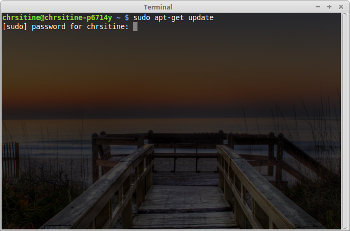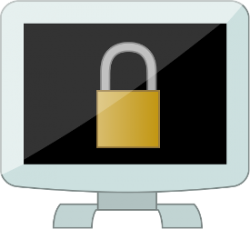From its inception, we knew the Internet to be an unsafe place. Before the first server was cracked by an online hacker, we knew that was bound to happen sooner or later. We knew because people were already breaking into computers, even without the Internet offering 24/7 cracker/hacker convenience.
Back in the early 90s, when I was living in the college town of Chapel Hill, I shelled-out five bucks or so at the local Egghead Software store for a shrink wrapped floppy disk loaded with “shareware” utilities for MS-DOS. Twenty years have passed, so I don’t remember what tool I needed, but I’d gone there specifically looking for something or another and had been directed to that particular product by a clerk at the store. Once I got home, I stuck the disk into the drive, looked over its contents and installed a couple of the apps.
 That was the end of it, or so I thought.
That was the end of it, or so I thought.
Several months later a biology major friend of mine with no computer skills — yes, in those days it was possible to earn an undergraduate science degree without knowing how to use a computer — dropped by to use my computer, a 486 with a whopping 4 megs of RAM. She was set to graduate soon and needed to use my machine to prepare a resume. I opened WordPerfect and set her loose to type away, answering any questions she had as she worked — such as how to remove a formatting code or preview how the document would look when printed.
An hour or so later, when she finished, I saved her work to a new blank floppy and sent her to see our mutual friend, Tony, to print it, as all I had was an old, noisy and beat-up Epson dot matrix printer and he had a fancy daisy wheel job. Two days later, she was back at my door, mad as hell.
Christine Hall has been a journalist since 1971. In 2001, she began writing a weekly consumer computer column and started covering Linux and FOSS in 2002 after making the switch to GNU/Linux. Follow her on Twitter: @BrideOfLinux



 Ironically, this side door is intended to be a security door for third party add-ons that every Windows machine needs to keep it safe from cracker hackers — if that’s indeed possible. And this security tool is usually more trusted by Microsoft system admins, especially those outside the U.S., than Windows itself.
Ironically, this side door is intended to be a security door for third party add-ons that every Windows machine needs to keep it safe from cracker hackers — if that’s indeed possible. And this security tool is usually more trusted by Microsoft system admins, especially those outside the U.S., than Windows itself.
 I participate in a group of professional penetration testers (the nice folks who help you test your security as if they were the bad guys) called
I participate in a group of professional penetration testers (the nice folks who help you test your security as if they were the bad guys) called 

 That was the end of it, or so I thought.
That was the end of it, or so I thought.